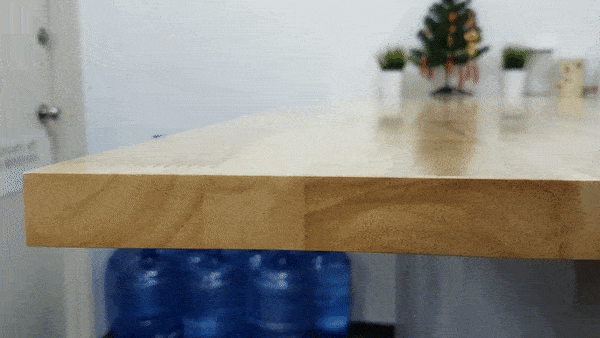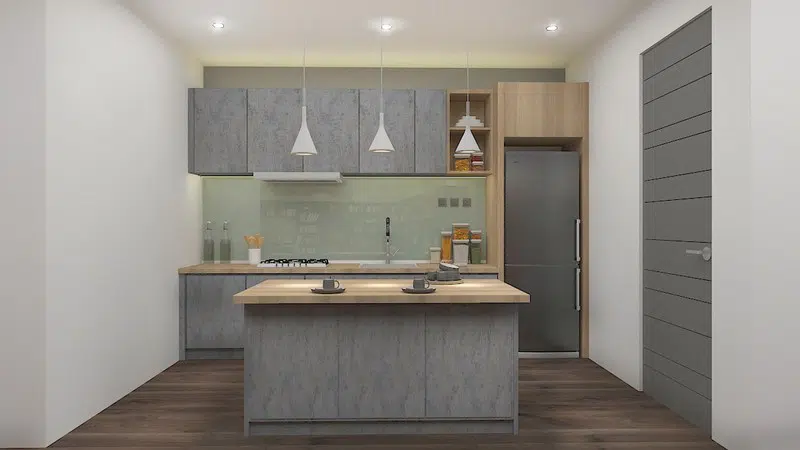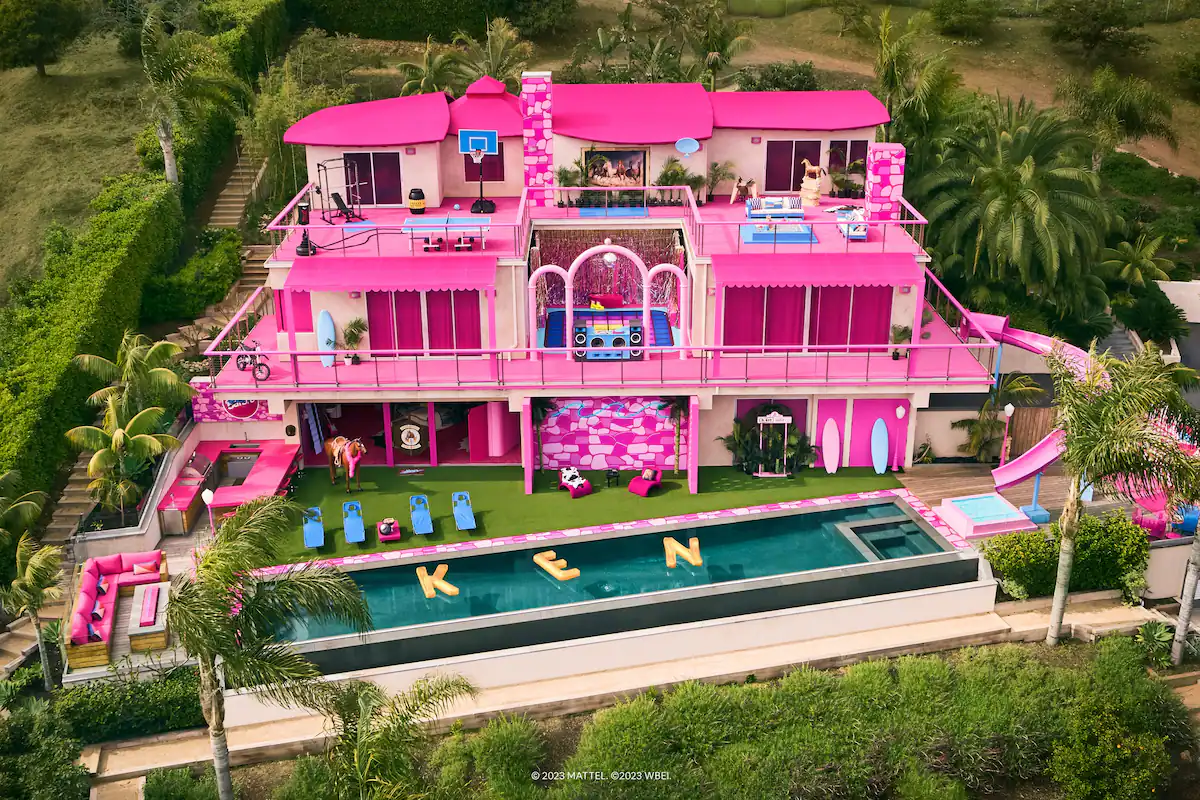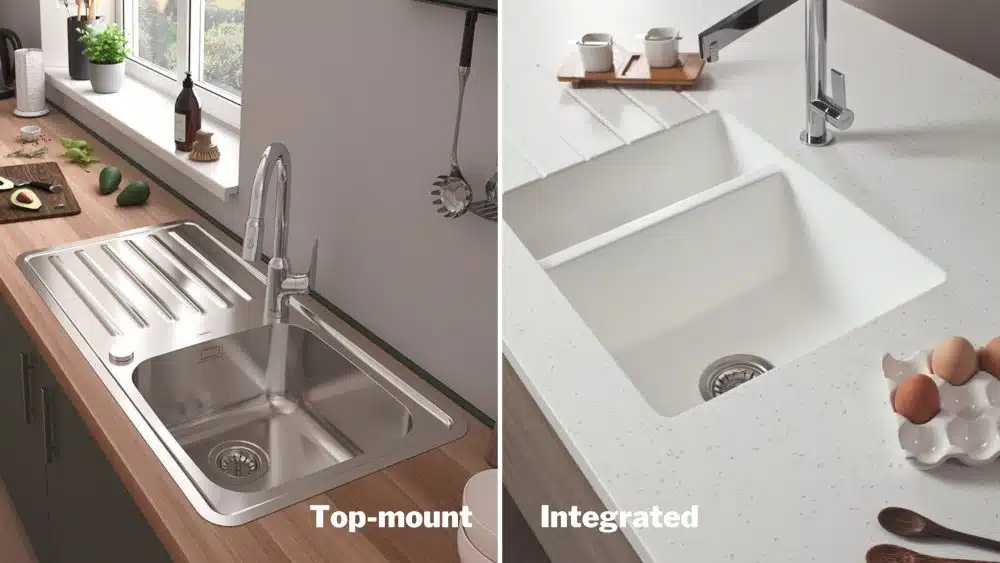One important decision in any kitchen renovation is choosing the right kitchen countertop material. Your kitchen countertop will take a lot of abuse over the years, so you need to choose one that suits your needs and budget.
If you love a natural, Scandinavian look in your home, then you will likely want a granite stone, quartz stone or wooden kitchen counter. But these options can be expensive.
Granite and quartz countertops start from RM250 per foot run and above. So, if you have a 6 foot kitchen counter, you’re already expected to spend at least RM1,500 just for your countertop alone.
The beauty of hardwood kitchen countertops
There’s no denying that natural wooden countertops look gorgeous. They give any kitchen a warm and natural look. In addition, they are less noisy when you put dishes on it, and can be polished relatively easily if it gets scratched.
Plus, having a thick wooden worktop is very trendy these days. It works equally well for Malaysian homeowners looking for a minimalist, Scandinavian interior design style, or those looking for a more traditional, rustic look.
However, wooden kitchen cabinet counters are generally seen as an expensive choice. Wooden kitchen countertops made of hardwood planks like nyatoh or walnut wood can start from RM200 per foot run; the same as stone countertops. As such, it may be beyond the budget of first-time homeowners.
But what if there was a hardwood kitchen countertop that was affordable and looks great? It turns out, there is.
The case for Malaysian rubberwood
Malaysian rubberwood (or kayu getah) is the wood from the rubber tree (Hevea brasiliensis). After the tree stops producing useful latex (about 30 years after planting), it is used to make rubber wood planks. So, in a sense, they are being recycled to make your kitchen countertop.
Rubberwood is considered a hardwood, although it is lighter than other common wood varieties like chengal and keruing. The wood planks are popular in furniture and cabinetry because of its uniform grain and ease of manufacture.
In Malaysia, sawn rubberwood timber is about 70% cheaper per cubic metre compared to Chengal. And 45% cheaper than Merbau (Source: Malaysian Timber Industry Board).
This makes rubberwood an affordable way to create a beautiful kitchen countertop in your home.
Affordable and locally-sourced
In the 1960s, the export of rubber products constituted 55% of Malaysia’s total exports (Source: rubberasia.com).
Even though that number is lower today due to a switch from rubber plantations to oil palm, Malaysia is still the world’s sixth largest producer of natural rubber, after Thailand, Indonesia, Vietnam, China and India. Malaysian rubber products are currently exported to more than 190 countries globally.
In fact, 80 per cent of furniture exports from Malaysia to other countries are made from rubberwood, according to Malaysian Timber Industry (MTIB) director-general Datuk Dr Jalaluddin Harun (source: NST)
When a rubber tree has passed the age where it no longer produces quality latex, it can be harvested into planks, woodchips for MDF board, or plywood.
The sawn rubberwood lumber is typically treated in a preservative to prevent it from beetle infestation. However, chemical treatments are being replaced by a method called high-temperature drying (HTD), a process developed in Malaysia by FRIM.
Above: Processing rubber trees in sawmill
In May 2017, the Malaysian government imposed a total ban on the export of raw rubberwood. So, rather than selling raw rubberwood to overseas markets, it is made available to local manufacturers to use. (Source: NST)
The high availability of rubberwood In Malaysia means that local manufacturers can use it predominantly in their cabinets and furniture.
It also means that it’s possible to get a rubberwood kitchen counter worktop from as low as RM100 per foot run.
Benefits and disadvantages rubberwood kitchen countertops
Rubberwood is classified as a hardwood. And using hardwood kitchen counters have a quality that is hard for other materials to match.
For one, they are more affordable compared to natural stone (granite), engineered stone (quartz), or solid surface.

In fact, a countertop like the one in the image above would cost about RM500, compared to RM1000 for solid surface.
A wooden kitchen counter is also less noisy. Put your dinnerware on a granite counter, and compare with a hardwood counter, and you can hear the difference. It also has a natural grain pattern that can’t be beaten by synthetic materials.
However, some homeowners shy away from rubberwood in favour of other premium hardwoods, because they feel that the grain pattern in rubberwood is a bit “dull”, or has less “personality” (source).

To add more variety into the rubberwood counter, manufacturers will join several pieces together to make a patterned block. This can be seen in the image above.
This does not make a difference to the rubberwood texture, since it will usually be varnished with a protective coating anyway.
What is the hardness of rubberwood compared to other hardwoods?
The hardness of wood is measured by the Janka hardness scale. Rubberwood is classified as “moderately hard” at 4,280 N. For comparison, merbau wood has a Janka hardness of 7,620 N, nyatoh at 4,760 N, and teakwood at 4,740 N.
As such, a rubberwood countertop will be able to withstand regular kitchen use without any problems. Just don’t pound your sambal belacan on it!
How easy it is to maintain a rubberwood worktop?
Like any other wooden worktop, you want to avoid exposing it to standing water or extreme heat. For example, don’t defrost your fish on it or else the condensation may leave a mark. And don’t put your hot pan on it without a coaster. Luckily, any marks or stains can be easily sanded off and refinished.
Manufacturer will also suggest that you oil it every few weeks, and reapply the protective seal once every few years. Do this diligently and your wooden worktop will last for a long time.
And, if you want to change the colour of the worktop, you can do that too. Once the original stain is removed, it can be re-stained to a different shade according to your preference.
Can I put my cooking stove on a rubberwood worktop?
A wooden worktop should not have any problems with a cooking hob, as long as you are not installing a restaurant-grade high flame burner. As always, avoid putting hot woks and pans directly on the counter.
Can I put a sink in a rubberwood worktop?
Yes you can. The manufacturer will coat the counter with a waterproof seal that will effectively prevent any damage. However, your sink will also have a rubber seal around it, and when that starts to blacken and wear out over the years, you should get it replaced to avoid water getting trapped in between the sink and the edge of the worktop.
Browse our rubberwood kitchen packages
At Recommend.my, you can browse our collection of pre-designed kitchen cabinets that incorporate rubberwood worktops.
We source each design from local and international designers, and manufacture them locally, direct from factories so they remain affordable.
So, instead of working with a designer to build your space from scratch, our designs take you halfway there.
You can customise these designs to your floor plan, or even replace materials, finishes and colours. Our team will recalculate the cost and give you a final quote.


PS: Want more price estimates for your kitchen cabinet? Try our kitchen cabinet calculator














Pingback: Wood Planks Malaysia – Best Woods working
Pingback: What is Rubberwood? - Everything You Need to Know - WoodWorks Hub